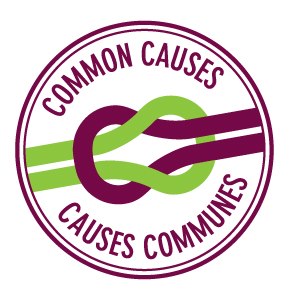Change the conversation, support rabble.ca today.
Common Causes is an assembly of social movements dedicated to defending democracy, social justice, the environment and human rights in the face of an all-out assault by the Harper government. This is the third extract we have published from Maude Barlow’s report on the goals and aims of Common Causes. For an overview, see this article or check out our special rabble.ca Common Causes page.
No government in Canadian history has so abused the rules of Parliament, or shown such contempt for transparency as the government of Stephen Harper. No other government has ever gone after civil society dissent in such an aggressive and threatening way. Indeed, the whole notion of democracy is at stake in this struggle.
Parliament is shut down to suit the government
Stephen Harper prorogued Parliament in 2009 when opposition parties threatened to defeat him. The Director of the Constitution Unit at University College London said that no Prime Minister has ever before sought prorogation to avoid a vote of confidence in order to save itself from political defeat. Harper then prorogued Parliament again in 2010 in order to stave off scrutiny over allegations that Canada wilfully looked the other way when Afghan detainees were transferred despite a risk of torture. In an attempt to dampen the growing crisis over these allegations, the government – even though ordered to by the House of Commons – had denied the Parliamentary committee uncensored documents concerning the case, pulled Conservative MPs from the committee, and worked to keep crucial information from the Military Police Complaints Commission. When the political heat kept rising, and opposition parties threatened a confidence vote, Harper prorogued Parliament. Constitutional expert Errol Mendes of the University of Ottawa said that the government’s handing over of these prisoners may have constituted a war crime and called the prorogation to cover it up “dangerous” and an abuse of power over Parliament, the Governor General, the public service and Canadian voters.
Vital information is withheld from the public
The Harper government runs a secretive operation. In 2010 and 2011, Canadian Journalists for Free Expression gave the Harper government the lowest possible grade for transparency, saying it takes longer than ever to access government information. For Harper’s refusal to disclose information about the cost of big-ticket items such as his law and order agenda and corporate tax cuts, his government was found in contempt of Parliament on March 25, 2011, a first in the history of the Commonwealth. For Stephen Harper’s refusal to disclose financial information about planned budgetary cuts, and his practice of low-balling the costs for the F-35 fighter jets, the Parliamentary Budget Officer took the government to court – another first. Debate in the House of Commons is increasingly limited and Parliamentary committees now meet more and more in camera, with a number of them conducting all of their business in camera. Opposition members cannot speak about what takes place behind these closed doors. Harper’s two 400-page-plus omnibus bills not only contained budgets that should have had full Parliamentary scrutiny, they made major changes to hundreds of laws with no public consultation or debate.
Harper’s office compulsively monitors and oversees all government communications, and senior bureaucrats and embassy staff are regularly muzzled. Government scientists cannot speak out publicly on any environmental concerns they have. Government lawyers are suspended for speaking out about government legislation that might violate the Charter. Environment Canada scientists attending a recent international polar conference were given strict instructions not to talk to the media until the interview was cleared by the department, which could then only take place in the presence of a government “minder” who would record the interview.
Dissent is crushed
Perhaps the most distressing thing about the Harper agenda is the blatant silencing of dissent. There is a relentless siege by this government against those who advocate for equality and social justice, the environment, human rights or peace. The clear message is that those who are not on board with this government’s position will be punished. Groups that have been critical of Harper’s tar sands project are vilified as extremists. (Forest Ethics is considered an “enemy of the Government of Canada.”) The Harper government revised its anti-terrorism legislation to add environmental groups as potential threats. The Climate Action Network was defunded, as was the Canadian Environmental Network. The last budget earmarked $8 million to crack down on civil society groups, especially environmental organizations, and to remove the charitable status of any group that dare speak out against government policy.
Aid agencies that promote a vision of social justice and human rights have been singled out. Canadian Mennonite magazine was warned by Revenue Canada that its charitable status is at risk because its newsletter contained an article about Mennonite youth urging the government to spend less on war. Development and Peace, the Catholic aid agency, and the Central Mennonite Committee have had their budgets slashed. Others have lost government funding altogether. They include KAIROS, the global human rights arm of 11 churches; Alternatives, the Québec-based social justice agency; MATCH, an organization that raised funds for women’s empowerment in the Global South; the Canadian Council for International Cooperation, a coalition of aid and development agencies that have been funded by government for decades; and Rights and Democracy, the Montreal-based human rights agency that was shut down after gross government interference in its internal politics.
Meanwhile, funding for evangelical aid agencies has risen steadily. A dozen NGOs in Western Canada saw their budgets increase by 72 per cent in five years. Africa Community Technical Services openly states that its work is under the authority of scriptures seeking to “glorify Jesus Christ.” It received $665,000 from CIDA in 2010. CAUSE Canada says they hope their work will “attract people to Christ.” It received $483,000 that same year.



